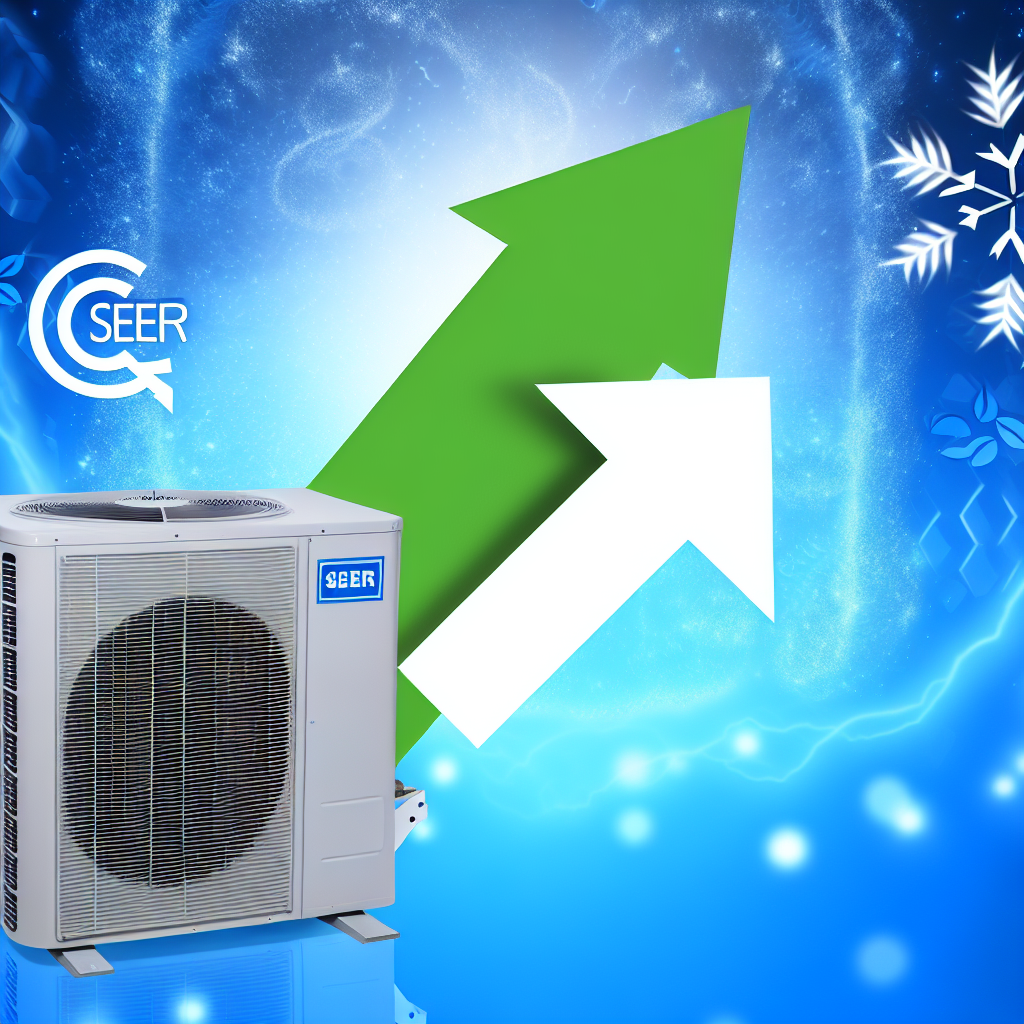Published: Nov 05, 2024

When it comes to purchasing a new air conditioner, there are many factors to consider. One of the key elements that often gets overlooked is the SEER rating. SEER stands for Seasonal Energy Efficiency Ratio, and it is a crucial metric that can impact both your comfort and energy bills.
The SEER rating measures the efficiency of an air conditioner over an entire cooling season. It is calculated by dividing the cooling output of the unit by the energy input, giving an average efficiency rating. The higher the SEER rating, the more energy-efficient the air conditioner is.
One of the primary reasons why the SEER rating is essential is its direct impact on energy savings. Air conditioners with higher SEER ratings consume less energy to cool your home, resulting in lower utility bills. While units with lower SEER ratings may be cheaper upfront, they can end up costing you more in the long run due to higher energy consumption.
Another crucial aspect of the SEER rating is its environmental impact. Energy-efficient air conditioners release fewer greenhouse gases, helping reduce your carbon footprint. By choosing a unit with a higher SEER rating, you are not only saving money but also contributing to a greener environment.
In addition to cost savings and environmental benefits, the SEER rating also affects the comfort and performance of your air conditioner. Units with higher SEER ratings provide more consistent cooling, maintain optimal humidity levels, and operate more quietly than lower-rated models. Investing in a unit with a high SEER rating can enhance your overall indoor comfort.
When selecting an air conditioner based on its SEER rating, consider your regional climate. Warmer climates where air conditioning is used extensively may require units with higher SEER ratings to ensure efficient cooling. In contrast, cooler regions may find lower SEER-rated units sufficient for their needs.
While a higher SEER rating offers long-term benefits, it may come with a higher upfront cost. Evaluate your budget and energy-saving goals to determine the most cost-effective SEER rating for your situation. In some cases, the energy savings from a high SEER unit can offset the initial investment over time.
Proper maintenance and professional installation are critical factors that can influence the actual efficiency of your air conditioner, regardless of its SEER rating. Regular maintenance, such as cleaning filters and checking for leaks, can ensure optimal performance and energy efficiency. Additionally, hiring a qualified technician for installation can prevent issues that may affect the unit's efficiency.
In conclusion, the SEER rating plays a vital role in determining the energy efficiency, cost-effectiveness, and environmental impact of your air conditioner. By understanding the significance of the SEER rating and considering factors like regional climate, budget, and maintenance, you can make an informed decision when selecting an air conditioning unit.
Summary: The SEER rating is a crucial metric that impacts energy efficiency, cost savings, and environmental sustainability when choosing an air conditioner. Understanding this rating and considering various factors can help you make a well-informed decision for your cooling needs.

Our expert technicians are ready to assist you 24/7!
Contact Us Today!Read our latest articles for helpful information about heating, cooling, and air quality.
Maintaining good indoor air quality is crucial for reducing allergy symptoms during allergy season. Regular cleaning, p...
Read MoreRegular air duct cleaning offers a multitude of benefits, including improved air quality, enhanced energy efficiency, p...
Read MoreRecognizing signs such as age, rising energy bills, frequent repairs, uneven heating/cooling, and strange noises/odors...
Read MoreRegular HVAC maintenance is crucial for keeping your system running smoothly, avoiding costly repairs, and improving ene...
Read More